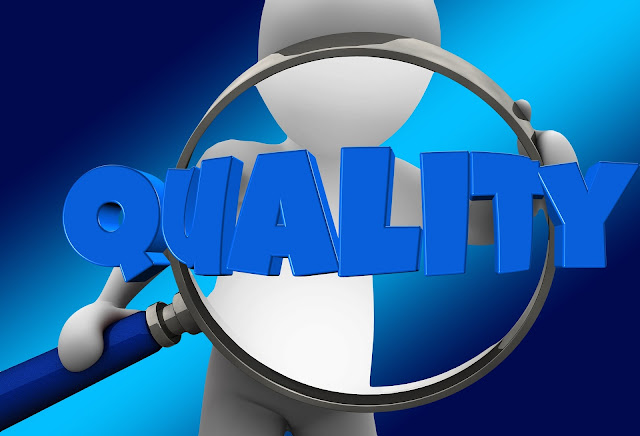Maintaining the quality of a product is the top priority of any organization. These organizations appoint quality control experts, in charge of ensuring product quality during manufacture before it is stored for use and delivered. Internal specifications and techniques are used by quality control specialists to evaluate the items. They evaluate final products thoroughly for irregularities and malfunctions, replacing or replicating defective items as soon as possible. They also keep track of production difficulties to communicate with management, as well as build strategic procedures for addressing quality issues and ensuring accuracy. To discover areas for improvement and assure customer satisfaction, the QC expert must have great communication skills as well as be detail-oriented.
Quality control inspectors are in charge of inspecting the quality of items made in the scientific, food, pharmaceutical, manufacturing, and technology industries. He or she examines the outgoing products to guarantee that they are defect-free and fulfill internal and exterior criteria. He or she performs lab tests, collects and analyzes data, and provides recommendations for improving output. He/she also assesses the technologies employed to manufacture the products to guarantee that they fulfill the required requirements. He/she also looks after the scientific and technical equipment that is used for product evaluation.
Responsibilities Of A Quality Control Expert
Some Of The Major Responsibilities Of Quality Control Experts Are Listed Below:
- Organize the office and conduct the day-to-day activities.
- Using a SharePoint web-based document management server, manage and coordinate the document modification process and keep track of current revisions.
- Review and maintain quality control; search the database for flaws, generate reports, and make necessary corrections.
- Conduct CAPA investigations and inspect vendors for suitability and compliance.
- Provide management with a tracking and reporting system for quality control findings, such as an excel spreadsheet or a PowerPoint presentation.
- Test paints and coatings for quality control, including waterborne, solvent-based, and UV wood coatings.
- Ensure that quality and safety requirements are met under corporate policies and FDA regulations.
- Assist with FDA inspections, facility assessments, and documentation evaluations as a coordinator.
- Conduct internal audits under governmental, industry, and internal quality standards, such as ISO.
- Conduct final product inspections, including bio-burden and sterility testing, as well as preservative efficiency testing.
- Receive samples, identify samples, log into the LIMS system, and prepare analytical reports for distribution.
- Perform quality control inspections on items utilized in the valve and pipe manufacturing facility, as well as process orders.
What Does It Take To Work As A Quality Control Expert?
Among the first things to keep in mind: if you want to become a Quality Control Inspector, how much schooling you'll need. A bachelor's degree is held by 52.4 percent of Quality Control Experts, according to our research. In terms of higher education, master's degrees are held by 6.4 percent of Quality Control Specialists. Although the majority of Quality Control professionals have a university degree, a person having a GED or high school diploma can also apply for this position.
When looking at how to be a Quality Control Specialist, picking the right major is crucial. When we looked into the most frequent majors for Quality Control Specialists, we discovered that they mostly earned Bachelor's or Associate's degrees. High School diplomas or Master's Degrees are two more degrees that we frequently see on Quality Control Expert’s resumes.

Comments
Post a Comment